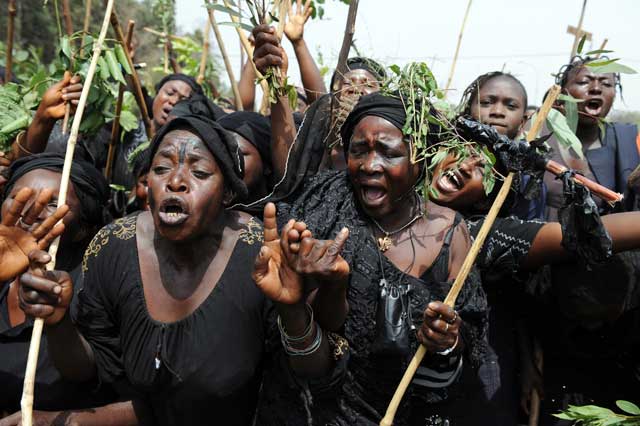The Tenth Parallel, By Eliza Griswold

The clash between Christianity and Islam is part of all our lives. Even a dry, academic address by Pope Benedict in 2006 at his alma mater in Germany, where he quoted a disparaging remark about Muslims by a 14th-century Byzantine emperor, had the power to bring violent crowds onto the streets in the Middle East. Yet here in the West it is still possible to dispute or downplay notions of a global stand-off between two of the world's great faiths, or push them into the realms of theological abstraction. But in Nigeria, Sudan, Somalia, Indonesia and the Philippines, there can be no such luxury, according to Eliza Griswold. These countries are all, she writes in this unusual travelogue, sitting on the fault line between the two expansionist religions.
Her book takes its title from the line of latitude which links the hotspots in this battle for souls in Africa and Asia, and is the result of seven years of research. That long gestation may bring a cost in terms of immediacy – it is hard to read her sections on Sudan without wanting her to have fitted into the picture the consequences of the recent referendum for independence in the south – but it also enables her to provide both a historical context and a grassroots account that will outlast specific political crisis.
Too often, our gaze only turns to place such as Sudan, Nigeria or Somalia when something specific but terrible is happening there – a communal massacre, starvation, kidnappings of passing yachtsmen, or murders of foreign aid workers. Almost as soon as we focus our attention, we are moving on to the next flashpoint. Griswold, by contrast, wants to bring us all in on the debate. So she goes to Nigeria's Middle Belt – a band of fertile grassland, 200 miles wide, running west to east between the seventh and tenth parallels, caught between the desert and its Muslim population to the north, and the swampy south and its Christians. Here she can observe how the competing claims of Christianity and Islam dictate events – and survival - in the free-for-all of Nigeria's malfunctioning democracy.
In Yelwa, scene of tit-for-tat attacks between Christians and Muslims that have left graveyards overflowing, she meets Danladi and Ibrahim, two young Muslim women taken captive in an attack by local Christians, forced to eat pork and drink alcohol, and then raped for four days. Danladi was four months pregnant at the time. "According to our ulamas [teachers]," she tells Griswold, "there is no way that the whole world will not be Muslim." I might well cling to the same ambition if I had suffered as she has.
Later Griswold visits the local Anglican archbishop, Benjamin Kwashi. In February 2006, while he was away, a group of Muslim men broke into his house, blinded his wife and slashed the lips of his seven-year-old son, leaving scars that will last a lifetime. "For Christians," the archbishop tells her, "God has moved his work to Africa."
The work of conversion, that is. Competition for souls breeds violence, and violence breeds competition. On the faultline, the call to evangelise – largely discarded in the live-and-let-live developed world – remains frighteningly potent. Until that impulse can be checked and restrained, the killing will go on.
What has disarmed it in the developed world has been prosperity. Griswold, to her credit, doesn't fall into the common trap of taking religious conflict out of its economic, social and political setting. "In Africa and Asia," she points out, "the band along the tenth parallel is one of the most ecologically precarious in the world."
There is much that is fresh and arresting in this book, but it has its flaws. At its simplest, Griswold is not a natural travel writer - a painter of memorable scenes or a teller of stories that linger in the memory. Her prose is more workaday. And I remained confused about her motives. Only on page 51 does she declare an interest – as the daughter of the retired head of the Episcopalian (Anglican) Church in America – and it takes until page 116 for her to attempt (and fail) to explain her own take on faith. "How can smart people believe in God?" she asks, and then readily accepts an invitation to kneel down and pray with Franklin Graham, another "preacher's kid", the son of über-Evangelist Billy and a stalwart of Christianity's efforts to take the fight to Islam in Africa. The juxtaposition of the two events begs the question - dispassionate reportage or a voyage round my father? - which lies at the heart of this book. Griswold, I'm afraid, never really answers it.
Peter Stanford's 'The Extra Mile: a 21st-century pilgrimage' is published by Continuum
Join our commenting forum
Join thought-provoking conversations, follow other Independent readers and see their replies
Comments
Bookmark popover
Removed from bookmarks